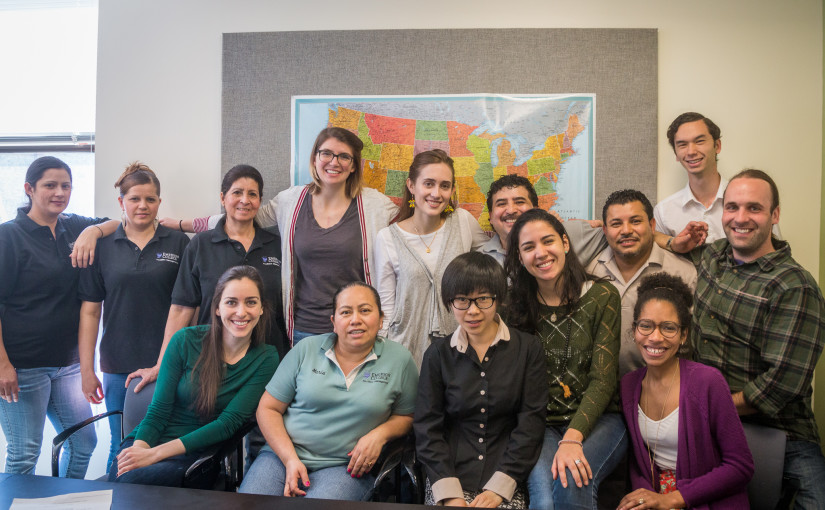Mobility Movilidad directors Tamera Marko and Ryan Catalani joined the Florida Caribe Show—a program on the community radio station WSLR in Sarasota, Florida—on Feb 24, 2016 to talk about Proyecto Carrito, a collective of immigrant janitors, students, professors, and administrators at Emerson College who write together to cross physical, social, emotional, and institutional borders. The interview also featured clips from Proyecto Carrito members Mario Ernesto Osorio, Maria Portillo, and Ramiro Soto, who are immigrant janitors at Emerson.
They discussed how the weekly translingual classes began and how those led to publishing texts by wrapping them on a car; the upcoming Proyecto Carrito Caravan, an immigrant-led movement for a more inclusive education system, launching this summer; and how schools and other institutions can be more inclusive toward all their community members. The interview starts at the 30 minute mark in the clip above.
The immigrant janitors who co-founded Proyecto Carrito were working during the show, so last week, they recorded themselves responding to a question that the hosts of the show, Paola Baez and Gerina Gjergji, sent in advance: What would you do to change the world? Those responses were played at the end of the show, starting at the 53 minute mark in the clip above.
Here’s what the workers said:
“Personally, I believe that for us—who, as immigrants in the US, interact daily with people from different nationalities and cultures—I would start by trying to understand each of these cultures and take what’s good from them, leaving behind the negative, and trying to adapt it to our own. That way we can try to understand each other better, and we would form true human connections, despite our differences, between all people. We would try to help one another, and little by little, I believe we would start to change the world.”
— Mario Ernesto Osorio
“To change the world, in the first place, we have to change personally, because it’s through changing ourselves that we change the world. We must end wars, eliminate discrimination because of nationality, skin color, sexuality—there can’t be discrimination for any reason. We must seek God, take care of planet Earth, take care of nature, look out for the poor, be generous with our heart, and give our time without expecting to receive anything in return.”
— Maria Portillo and Maria Guerra
“We think we need to believe that every culture is valuable and has knowledge to share with the world. We need equality and respect for human rights—for example, education, shelter, food—for everyone. We need to accept each person as they are and take care of the environment.”
— Ramiro Soto and Maria Cecilia Cardona
Ramiro also talked about what the class means to him and the other workers:
“In this class, we have people from Peru, Hawaii, Guatemala, El Salvador, Colombia, California, Indonesia, China, Puerto Rico, the Philippines—that’s Proyecto Carrito. We enjoy the cultures we each bring. I think if you don’t come to the class, you don’t get through the week. It’s something that you need, to be here. It’s a time that we look forward to since Monday. (The class meets every Wednesday.) We feel good. It’s a place where you feel accepted and share with everyone else. Outside, we’re not accepted, and here in the class, everyone is equal. We all learn and we all teach.”
